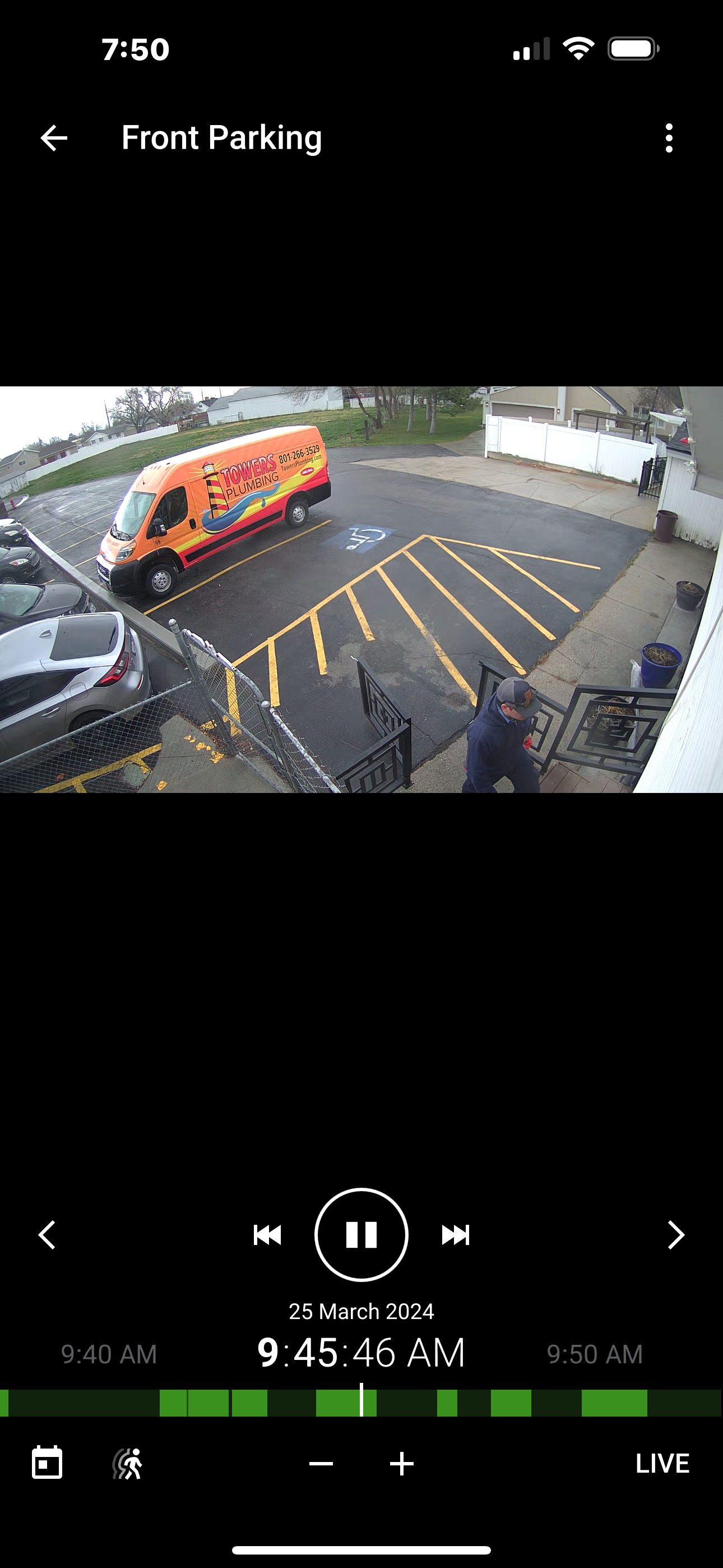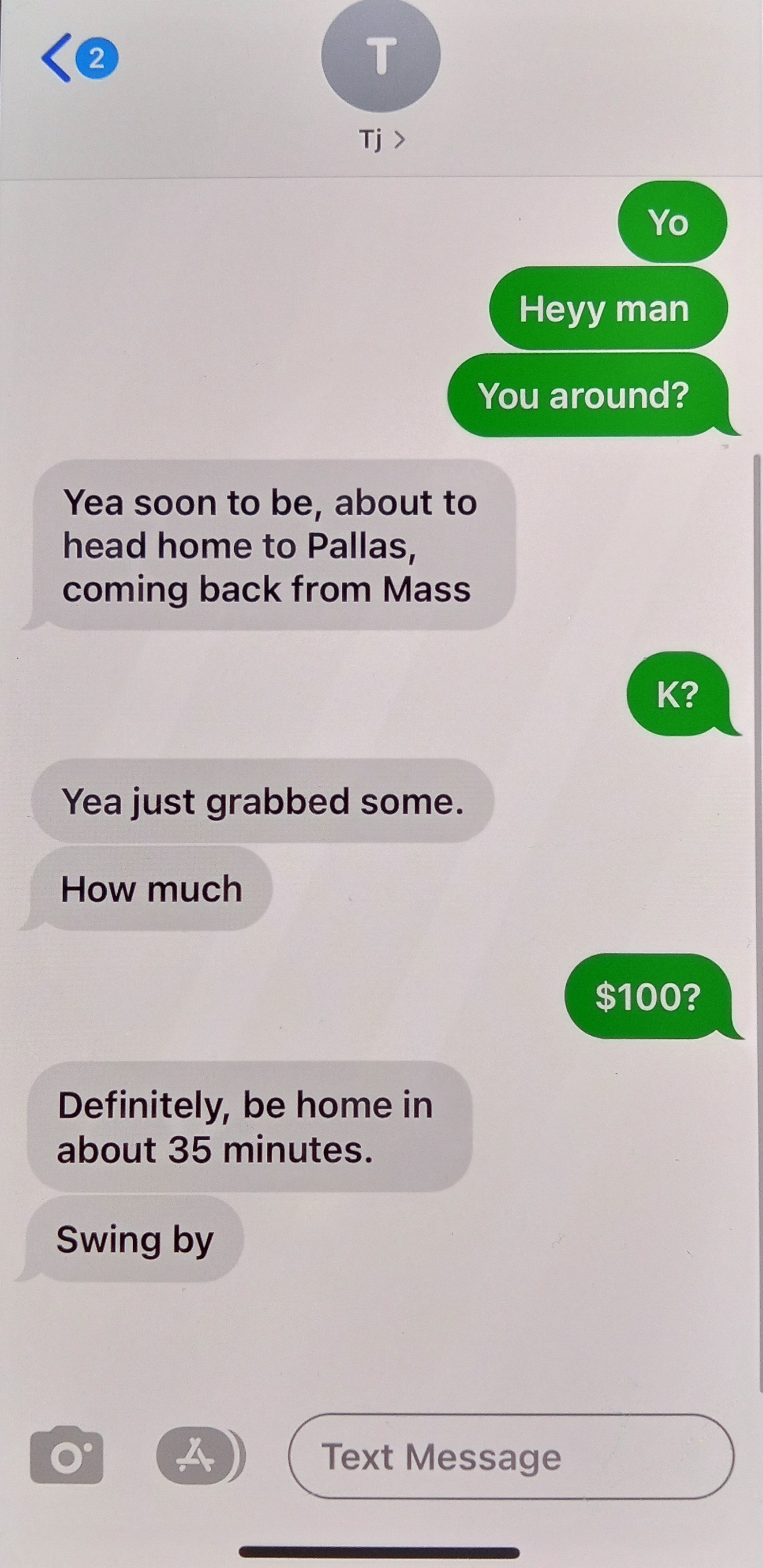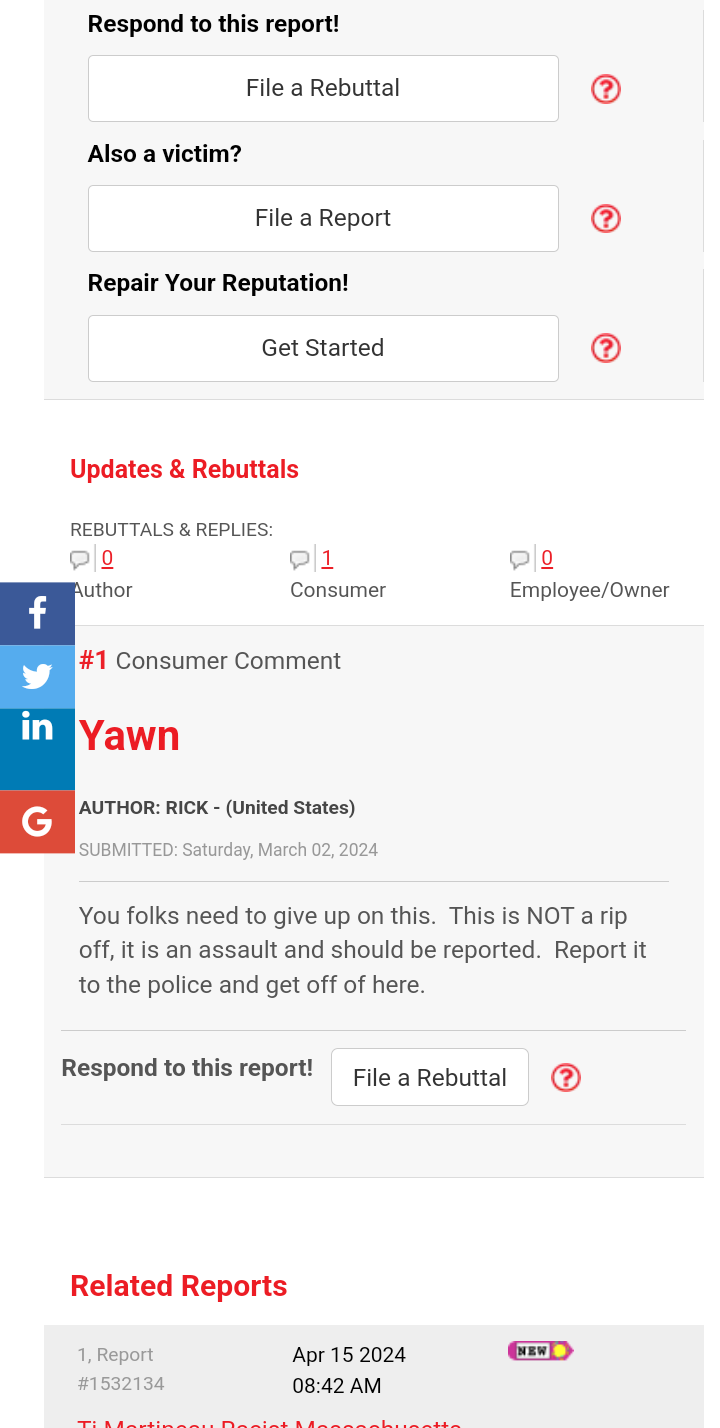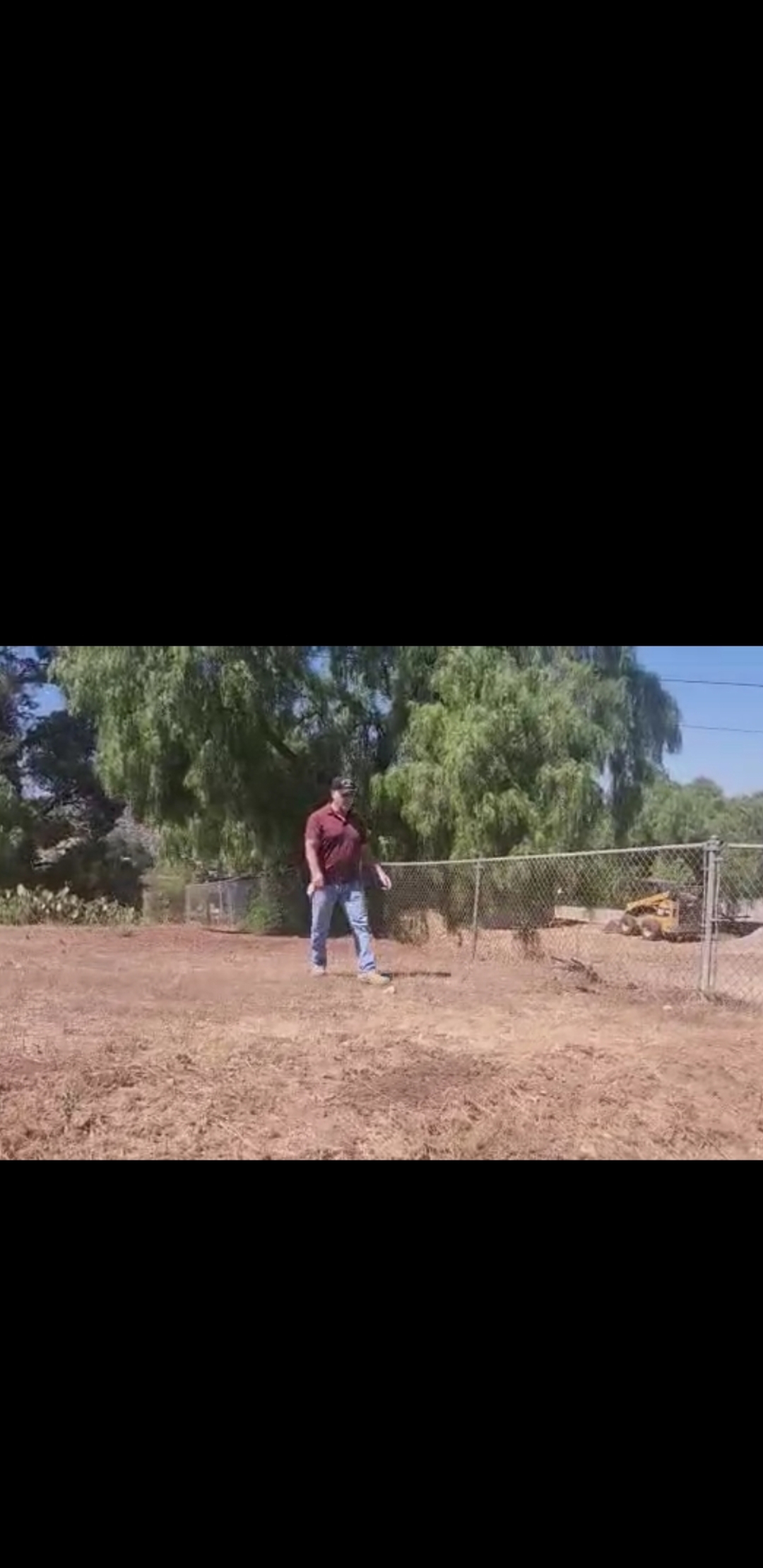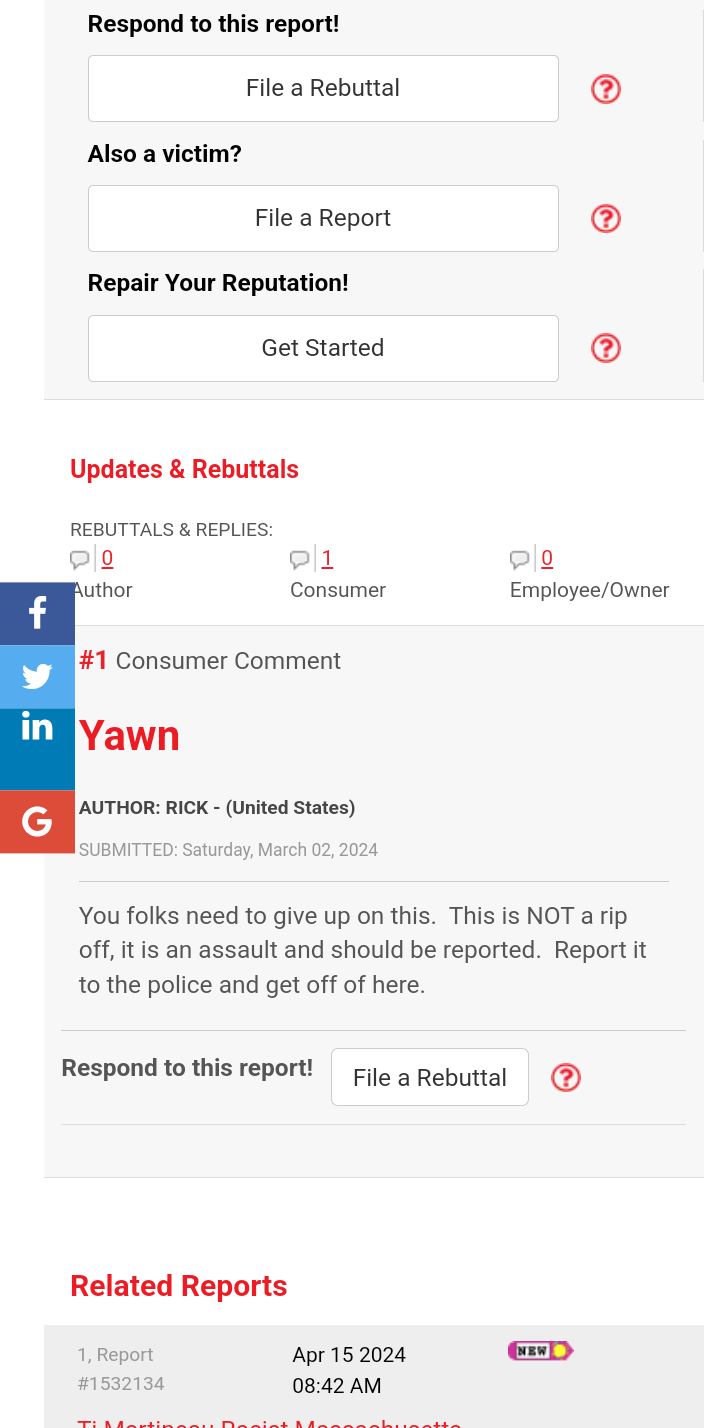- Report: #77490
Complaint Review: The City Of Mesa Arizona - Mesa Arizona
The city of Mesa Arizona is using Unconstitutional rules in its Municipal Court, curruption Mesa Arizona
(A) A person with a civil code complaint shall appear at the time and place stated in the complaint or may appear prior to the time if so authorized by the court and upon the directions contained in the complaint and admit or deny the allegations of the complaint. Allegations not denied at the time of appearance are admitted. A fee shall not be charged for such appearance.
(B) If the allegations are admitted, the court shall enter judgment for the City and impose a civil sanction. Allegations may be admitted with an explanation. In such case the court shall enter judgment for the City and impose a civil sanction. In determining the civil sanction, the court shall consider the explanation submitted.
(C) If the person denies the allegations of the complaint; the court shall set the matter for hearing. All such hearings are informal and without a jury, and the City is required to prove the violation charged by preponderance of the evidence.
Technical rules of evidence do not apply, except for statutory provisions relating to privileged communications. If the person elects to be represented by counsel, the person shall so notify the court at least ten (10) days prior to the hearing date. Hearings may be recorded. If the court finds in favor of the person, the court shall enter an order dismissing the allegation. If the court finds in favor of the City, the court shall enter judgment for the City and impose a civil sanction.
(D) If the person served with a civil code complaint fails to appear on or before the time directed to appear or at the time set for hearing by the court, the allegations in the complaint shall be deemed admitted, and the court shall enter judgment for the City and impose a civil sanction.
Anybody notice what missing from these rules? How about Amendments 4,5,6 and 7 from the U.S. Constitution. I specifically draw your attention to the parts, which say: "The hearing is informal and without a jury" and "Technical rules of evidence do not apply". Does anyone grasp the significance of those statements? Without "Technical rules of evidence" there are no rules of evidence at all. This statement gives the Judge the authority to admit or not admit whatever evidence he wants to and the defendant has no recourse. Let's say you have evidence, which will completely win your case. The judge doesn't have to admit it as evidence or consider it at all and doesn't even have to give you an explanation of why. Not only that, but our Municipal Court hears cases which involve misdemeanors that have penalties up to a $2,500 fine and six months in jail. Think about that. A person in Mesa can be brought before a Court that has no jury and no rules of evidence and can be put in jail for up to six months by that Court. Think something like that can only happen in China, or in the old Soviet Union? Wrong! It's in Mesa, Arizona today.
Late last year I had the displeasure of running into a City of Mesa park ranger and received a citation for violating the dog leash law. I then discovered the meaning of these court rules first hand. The really sad thing though, is that our local rules are based on the State and Federal rules which are also Unconstitutional. And we wonder why we can't get justice in court. It seems that the Supreme Courts' been falling down on the job for a long time now, and we're living with the results. Considering that the Preamble to Mesa's City Charter says the City is dedicated to the United States Constitution, you'd think someone in the local government would have caught on to the Unconstitutional nature of these rules by now. There's a reason why our founding fathers put those four Amendments into the Constitution; it was to prevent Cities and States from doing just this sort of thing. Looks like our City and State governments' are falling down on the job too.
Michael
Mesa, Arizona
U.S.A.
Click here to read other Rip Off Reports on Mesa Arizona
3 Updates & Rebuttals
Peter
Mesa,Arizona,
U.S.A.
This is the small change. Read other Ripoff Reports.
#2Consumer Suggestion
Wed, April 14, 2004
This is just procedural details. Well, after 18 years in Mesa, Arizona, the Scumpit of ALL Scumpits, you would think I couldn't be shocked. I mean, after all, if you live that long in a venue where cops murder 15 year-old kids with ten or more hits (they were about thirty feet away... ain't it odd that 33% of the bullets from these cowardly scumbags MISSED?), what can POSSIBLY shock you any more? The fact that the little pissant chickenshits openly protect "coyotes" who import illegal Mexican labor? Or that they seem to be "in cahoots" with the thousands of local Methamphetamine and crack cocaine dealers, or at least, seem MIGHTILY uninterested in doing anything to suppress any REAL crime where these quivering, gutless pansy flowers might actually get injured??? Nah. That's minor league stuff. What REALLY shocks me is that this collection of automaton fluff flowers is actually CELEBRATING their little acts of murder and the fact that the legless weasel, Romley, continued their lies and coverups, as if their acts of complete corruption had something to do with COURAGE...or DUTY...instead of what they really are, which is the penultimate act of direct treason to the citzens of the community. There is no statute of limitations on Murder, filthy scum sucking ratbastards who pretend to be police, but there IS the proviso against "double jeopardy", a technicality the like of which sniveling filth like these three bastards will USE to cover their continuing criminal conduct. There you go! Cowards and traitors, calling themselves "cops", using "technicalities" to protect their immoral and illegal conduct, and relying on their most corrupt allies to reinforce their lying cover stories. How disgusting!!! How demented can you get?
Tim
Valparaiso,Indiana,
U.S.A.
Have you actually read the constitution? rules you are referring to are civil procedure
#3Consumer Comment
Tue, January 20, 2004
My first major issue with your report is that the rules you are referring to are civil procedure rules, yet you assert that a court operating under these rules could imprison you. This is an erroneous statement. These rules only pertain to civil infractions, not misdemeanors. If a court was hearing a misdemeanor (or felony for that matter) case they would operate under a completely different set of rules wherein the defendant actually does have the rights that you presume civil defendants have (or should have). Now, lets get into the constitution. You assert that these rules violate the fourth, fifth, sixth and seventh amendments. The fourth amendment protects privacy (unreasonable search and seizure). Often times people tend to think that the purpose of the fourth amendment is to simplify criminality, but it is not, it is only there to protect us from government intrusions in our homes, cars, etc. Furthermore, you don't set forth any facts showing a defiance of the fourth amendment in the first place. The fifth amendment requires grand jury indictments in felony trials and prevents people from being forced to act as witnesses against themselves. This amendment speaks only to criminal law, and as such has no bearing on civil cases. The sixth amendment begins with the words "In all criminal prosecutions." Again, no bearing on civil cases. You have a fairly decent argument for the seventh amendment, unfortunately the supreme court disagrees with you, and not without good reason. The seventh amendment does not "guaruntee" the right to a jury trial, as most people think, it merely "preserves" that right. What this means is that, if you would have had the right to a jury trial in a particlar case at the time the constitution was written, you still have it. If your case is one that either didn't exist in 1789, or if in that year your case wouldn't have required a jury trial, you don't have a constitutional right to one today. It may seem silly, and it may seem that the supreme court has misread the constitution, but they have not, and there is a very good reason behind this construction and on the whole it benefits the administration of fair justice more than the common misconstruction would. As for evidentiary rules, nothing in the constitution dictates what evidence states must require their judges to allow in their courtrooms. Evidentiary issues are solely a province of state law, unaffected by the U.S. constitution. If, however, evidentiary rules are being enforced arbitrarily, i.e. they apply to the defendant but not to the state, then I think you'd have a due process issue. If they go both ways, i.e. neither side can introduce a particular type of evidence, the constitution is not offended. Now to a brief history lesson. Your assertion that the founding fathers put the fourth through seventh amendments in the constitution as a restraint on the activities of the states is the opposite of what really happened. The bill of rights was written to place limits on the federal government only. The first ten amendments place no restraint on state governments, and were actually included largely to ensure that the federal government would not intrude upon the rights of the states. It was not until the reconstruction (1868 to be specific), when the fourteenth amendment was introduced, that the bill of rights was applied to the states. Nobody likes to lose a legal battle, and when we do we look to sources other than the strength of our claims or defenses to blame for it. Did you actually violate the leash law? What evidence could you possibly have introduced to say that you hadn't? How would a jury have helped? If you actually did violate this law, then what you are really angry about is that you weren't allowed to use up valuable courtroom time presenting worthless evidence, empanelling a jury, and whatever other steps you incorrectly feel you are entitled to. Civil infractions are generally what are known as "strict liabilty" offenses, meaning that the only defense that will do you any good is that you didn't actually do it. Not knowing about the law, a pattern of non-enforcement, your dog ran loose from his leash, etc. would have been of no use to you anyways.
Michael
Mesa,Arizona,
U.S.A.
ask them how they stack up against the Preamble to the Mesa City Charter
#4Consumer Suggestion
Tue, January 20, 2004
Just to let you all know, the email address I put at the top of the report doesn't go anywhere. What I should have put in is this web page: http://www.ci.mesa.az.us/government/default.asp This web address will take you to a city of Mesa web page where you can look up the code yourself. It's in Title 1. Also, the actual City Code number is Chapter 27 section 7. See for yourself and have a copy of the Bill of Rights in your hand when you do. Then ask yourself how the City Council could possibly justify passing these rules into law. Finally, just for fun, how about letting the Mayor and City Council know about these two rules and ask them how they stack up against the Preamble to the Mesa City Charter. (For laughs look that up too!) Their email addresses are on the same web page. I know it won't do any good, but if you got nothing better to do for a few mintutes...







